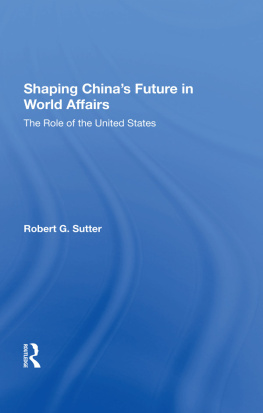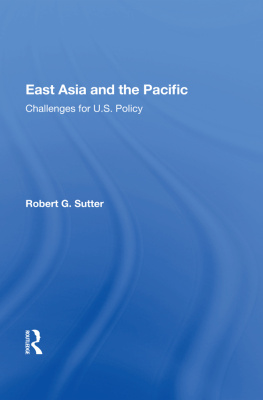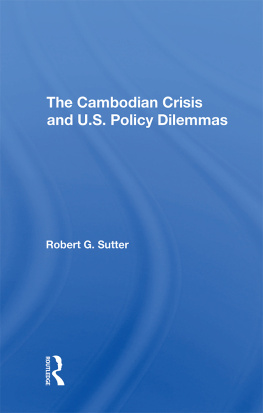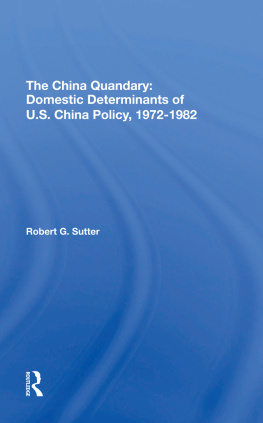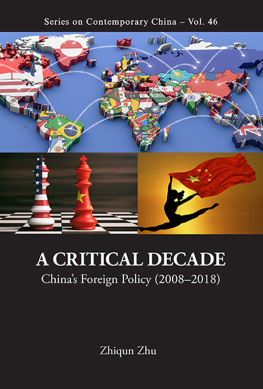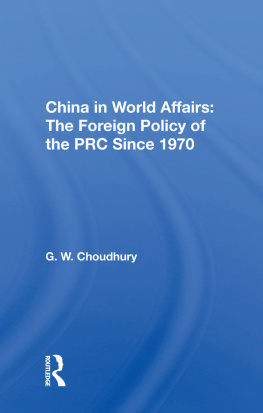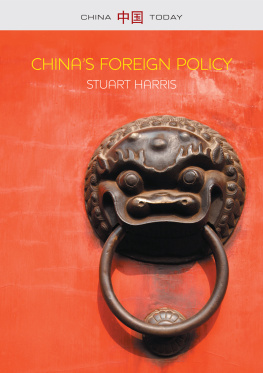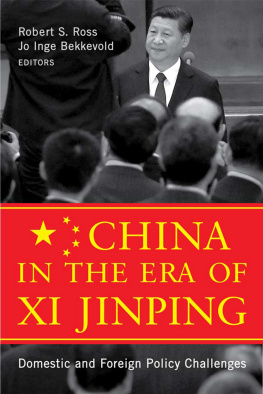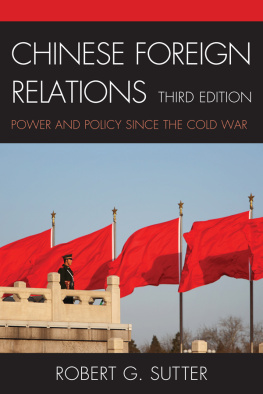China has often been seen as a challenge or an opportunity to the prevailing international system. The victory of communist forces in China in 1949 was followed in 1950 by the signing of the Sino-Soviet alliance, the start of the Korean War, and Chinese military force intervention in the Korean conflict. Chinese actions prompted a reconfiguration of world politics. The United States and its allies and associates felt compelled to broaden the emerging international containment system from Europe and the Middle East to East Asia. The result was twenty years of military confrontation, economic isolation, and political stalemate.
Chinas break with the Soviet Union in the 1960s provided a basis for the realignment of Asian politics carried out by Richard Nixon and Mao Zedong in the early 1970s. Cooperation with China was now seen as an important strategic opportunity for the West in its continuing competition with expanding Soviet power. China too saw its interests directed against Moscow and sided with the United States and its allies and associates for mainly strategic reasons.
As Americans and other outsiders observed firsthand the conditions prevailing in China, they often reevaluated their past, sometimes exaggerated views of Chinas power and influence. Nevertheless, most thought well of the Chinese leaders efforts after the death of Mao Zedong in 1976 to revitalize Chinas stagnating economy through reforms that gave freer rein to Chinese private enterprise and to Chinese economic interaction with the developed countries of Asia and the West.
As the East-West conflict declined in the 1980s as a result of Mikhail Gorbachevs playing down of military expansion and his renewed emphasis on international dtente, Chinas strategic importance as a counterweight to Soviet expansion declined to some degree in world opinion. But this appeared to be more than compensated for by the strong positive interest seen in the developed countries regarding Chinas steady progress toward economic reform and outreach to foreign economic powers, and by Beijings concurrent interest in complementary political change.
The prevailing international view of Chinas power and influence took a radical turn downward in 1989. In the period immediately following the June 1989 Tiananmen incident and subsequent collapse of communist regimes in Europe and elsewhere, it was common for journalists, analysts, and other observers outside China to judge that the communist regime in China was destined for collapse. Observers also sometimes warned of major retrogression in Chinese economic reforms, speculating that Beijing would feel compelled in the face of domestic and foreign pressure to revert to autarchic development policies of the Maoist past. These would reduce Chinese interdependence with other countries and substantially reduce Chinas incentive to avoid disruptive behavior in interaction with its neighbors and other world powers.
On balance, Chinas record in recent years has undercut the more extreme near-term predictions of collapse or retrogression. The regime in Beijing has presided over a period of unprecedented growth in the Chinese economy. This growth has not only benefitted many in China, but has come at a time of general lackluster growth in other parts of the world. The result has been a period of unprecedented international investment in and interaction with the Chinese economy. When combined with Beijings careful avoidance of major controversy and generally accommodating posture in world affairs in recent years, the result has been to erode foreign sanctions and to enhance the international legitimacy of the Chinese leaders. The success of Chinas continued economic reform also has undermined the arguments of those conservative Chinese leaders who might be inclined to press for a more autarchic development strategy and a more assertive, less flexible posture in world affairs.
Nevertheless, analysis of key determinants of Chinas future shows a wide range of possible outcomes for China over the next decade. In particular, a good deal of the success of Beijings efforts in recent years came under the leadership of senior leader Deng Xiaoping. Dengs demise means that a vacuum at the center of political power in China could lead to political struggles with possibly adverse outcomes for the country. The leadership transition is likely to complicate an already difficult set of problems of governance caused by dynamic economic growth, rapid social change, a realignment of central and local power arrangements, and other factors.
A positive scenario for Chinas future posits an effective administration and greater political reform along with powerful economic modernization. More negative scenarios fall into two categories. The first sees a series of developments leading to degeneration of government effectiveness and authority with a range of negative effects on Chinas economic and social development. The second envisions China developing formidable economic power while retaining strong authoritarian political control. This raises the possibility of an emerging Chinese economic and military superpower, less interested in accommodation with the outside world and unfettered by the political checks and balances that accompany less authoritarian political structures.
The United States has a lot at stake in Chinas future. China lies at the center of the worlds most dynamic economic region. Disruption in China not only would have a major impact on U.S. investment (over $7 billion utilized since 1979) and trade (over $40 billion annually) with China, but also would have a serious effect on U.S. trade, investment, and other commercial interaction throughout East Asia. Strategically, cooperation from China is central to U.S. efforts to maintain peace on the Korean peninsula, the Taiwan Strait, and the South China Sea; curb the spread of nuclear weapons and related delivery systems; and create a cooperative atmosphere among the great powers in the UN Security Council in order to deal effectively with international trouble-spots. Because of its size, economic growth, and location, China is having an increasingly important impact on U.S. interests in curbing environmental pollution and promoting sustainable development internationally. Over the longer term, China is one of the few world actors capable of creating economic, political, and military power sufficient to pose a strategic danger to the United States.
The United States also exerts important influence on China.two world powers capable of exerting sufficient power around Chinas periphery to pose a tangible danger to Chinese security and development. As the worlds only superpower, the United States also exerts strong influence in international financial and political institutions (e.g., the World Bank and the UN) that are very important to Beijing, and its role in particular areas sensitive to Beijing-notably policy regarding Taiwan and international human rights-is second to none.

